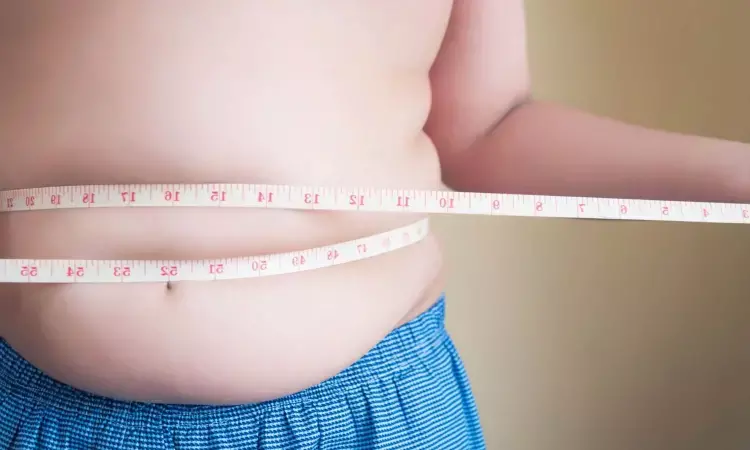- Home
- Medical news & Guidelines
- Anesthesiology
- Cardiology and CTVS
- Critical Care
- Dentistry
- Dermatology
- Diabetes and Endocrinology
- ENT
- Gastroenterology
- Medicine
- Nephrology
- Neurology
- Obstretics-Gynaecology
- Oncology
- Ophthalmology
- Orthopaedics
- Pediatrics-Neonatology
- Psychiatry
- Pulmonology
- Radiology
- Surgery
- Urology
- Laboratory Medicine
- Diet
- Nursing
- Paramedical
- Physiotherapy
- Health news
- Fact Check
- Bone Health Fact Check
- Brain Health Fact Check
- Cancer Related Fact Check
- Child Care Fact Check
- Dental and oral health fact check
- Diabetes and metabolic health fact check
- Diet and Nutrition Fact Check
- Eye and ENT Care Fact Check
- Fitness fact check
- Gut health fact check
- Heart health fact check
- Kidney health fact check
- Medical education fact check
- Men's health fact check
- Respiratory fact check
- Skin and hair care fact check
- Vaccine and Immunization fact check
- Women's health fact check
- AYUSH
- State News
- Andaman and Nicobar Islands
- Andhra Pradesh
- Arunachal Pradesh
- Assam
- Bihar
- Chandigarh
- Chattisgarh
- Dadra and Nagar Haveli
- Daman and Diu
- Delhi
- Goa
- Gujarat
- Haryana
- Himachal Pradesh
- Jammu & Kashmir
- Jharkhand
- Karnataka
- Kerala
- Ladakh
- Lakshadweep
- Madhya Pradesh
- Maharashtra
- Manipur
- Meghalaya
- Mizoram
- Nagaland
- Odisha
- Puducherry
- Punjab
- Rajasthan
- Sikkim
- Tamil Nadu
- Telangana
- Tripura
- Uttar Pradesh
- Uttrakhand
- West Bengal
- Medical Education
- Industry
Once-weekly survodutide safely tied to substantial weight loss in obese individuals: Study

Germany: In adults with a BMI of 27 kg/m2 or greater without diabetes, once-weekly survodutide produced significant reductions in body weight versus placebo from baseline to week 46, findings from a recent phase 2 trial have revealed. Survodutide's tolerability profile was in line with what would be expected based on its mechanism of action; participants most frequently reported gastrointestinal adverse events.
"All tested survodutide doses significantly reduced body weight in a dose-dependent manner relative to placebo in participants with a BMI of 27 kg/m2 or greater (0·6 mg, ≥2·4 mg)," the researchers reported in their study published in The Lancet Diabetes & Endocrinology.
Survodutide doses 2·4 mg or higher resulted in substantial, clinically relevant bodyweight losses of 5% or more in over half of the participants within 8 weeks of treatment initiation.
Obesity is a chronic and widespread condition that requires long-term management, research into additional targets to improve treatment outcomes remains a priority. Therefore, Anita M Hennige, Boehringer Ingelheim International GmbH, Biberach an der Riß, Germany, and colleagues aimed to investigate the efficacy, safety, and tolerability of glucagon receptor–GLP-1 receptor dual agonist survodutide (BI 456906) in obesity management.
For this purpose, the researchers conducted a randomised, double-blind, placebo-controlled, dose-finding phase 2 trial in 43 centres in 12 countries. Participants aged 18–75 years, BMI ≥27 kg/m2, and without diabetes were enrolled. They were randomly assigned in a ratio of 1:1:1:1:1 to subcutaneous survodutide (0·6, 2·4, 3·6, or 4·8 mg) or placebo once-weekly for 46 weeks (20 weeks dose escalation; 26 weeks dose maintenance).
The study's primary endpoint was the percentage change in weight from baseline to week 46. The primary analysis included the modified intention-to-treat population and was based on the dose assigned at randomisation (planned treatment), containing all data censored for COVID-19-related discontinuation. The modified intention-to-treat population was defined as all randomly assigned patients who received at least one dose of trial medication and who had analysable data for at least one efficacy endpoint.
The sensitivity analysis was based on the actual dose received during the maintenance phase (actual treatment) and included on-treatment data. The safety analysis included all the participants who received at least one dose of the study drug.
387 participants were enrolled between March 30, 2021, and Nov 11, 2021; 386 participants were treated (0·6 mg, n=77; 2·4 mg, n=78; 3·6 mg, n=77; 4·8 mg, n=77; placebo n=77) and 233 of 386 completed the 46-week treatment period (187 of 309 receiving survodutide; 46 of 77 receiving placebo).
Based on the study, the researchers reported the following findings:
- When analysed according to planned treatment, mean changes in body weight from baseline to week 46 were −6·2%; −12·5%; −13·2%; −14·9%; −2·8%.
- Adverse events occurred in 91% of 309 survodutide recipients and 75% of 77 placebo recipients; these were primarily gastrointestinal in 75% of 309 survodutide recipients and 42% of 77 placebo recipients.
"All tested survodutide doses were tolerated, and dose-dependently reduced body weight," the researchers wrote. The effect of survodutide on body weight was sustained throughout the treatment period.
Reference:
Le Roux, C. W., Steen, O., Lucas, K. J., Startseva, E., Unseld, A., & Hennige, A. M. (2024). Glucagon and GLP-1 receptor dual agonist survodutide for obesity: A randomised, double-blind, placebo-controlled, dose-finding phase 2 trial. The Lancet Diabetes & Endocrinology, 12(3), 162-173. https://doi.org/10.1016/S2213-8587(23)00356-X
Dr Kamal Kant Kohli-MBBS, DTCD- a chest specialist with more than 30 years of practice and a flair for writing clinical articles, Dr Kamal Kant Kohli joined Medical Dialogues as a Chief Editor of Medical News. Besides writing articles, as an editor, he proofreads and verifies all the medical content published on Medical Dialogues including those coming from journals, studies,medical conferences,guidelines etc. Email: drkohli@medicaldialogues.in. Contact no. 011-43720751


